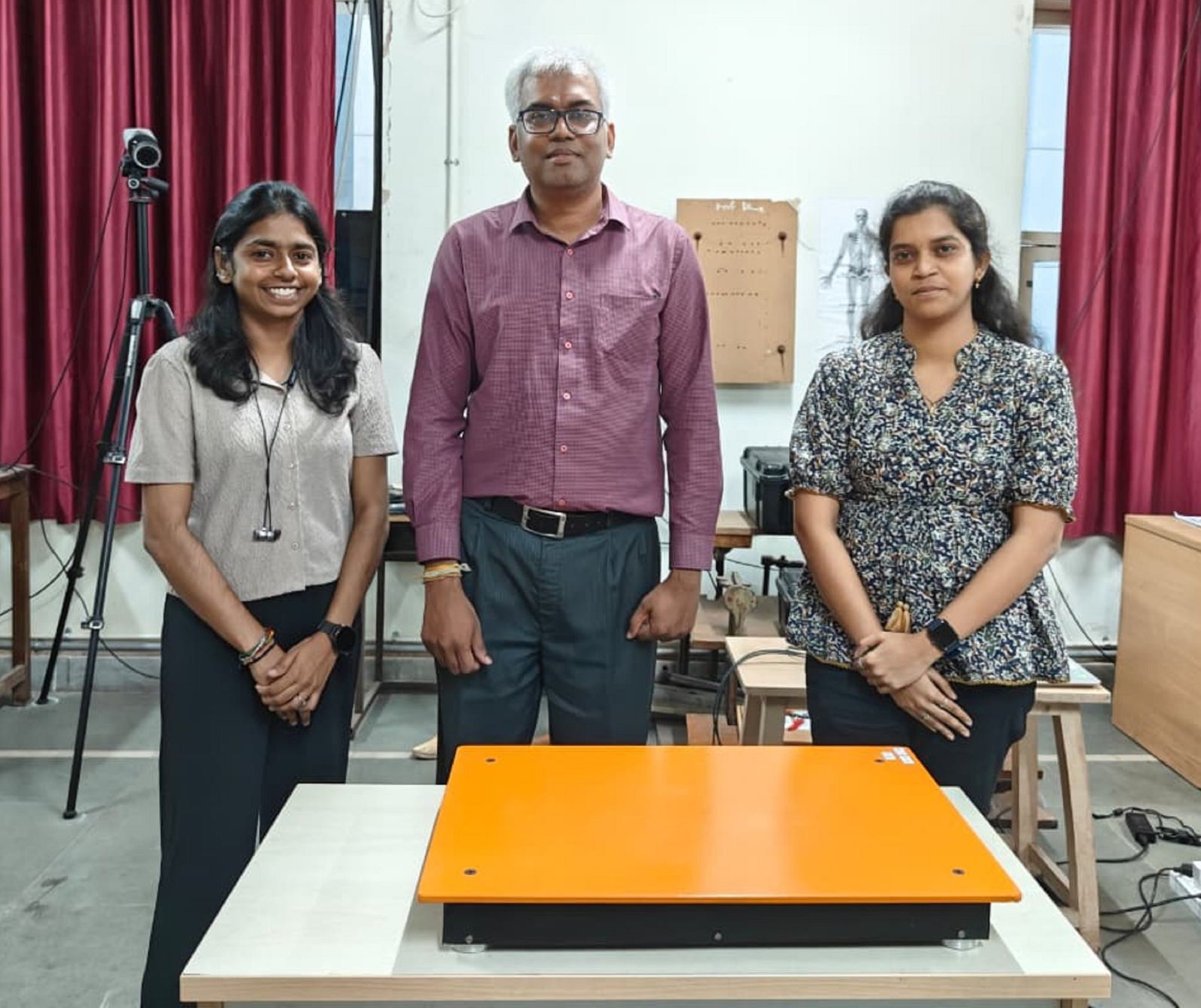NIT Rourkela develops cost-effective device for gait profiling
September 25, 2025 | Thursday | News
This device will be useful in sports academics, educational institutes, hospitals and rehabilitation centres
Researchers at the National Institute of Technology (NIT) Rourkela have uncovered new insights in developing low-cost indigenous force plate for measuring the multi-axial ground reaction forces (GRF).
The GRF measured from the force plates will be useful to diagnose the abnormal gait patterns. This device will also be useful in sports academics, educational institutes, hospitals and rehabilitation centres in India as it is affordable compared to the existing foreign suppliers.
The research team used the indigenously developed force plate along with the motion capture system to evaluate the heel pad stiffness in a non-invasive technique.
By studying how the heel pad, the natural cushion of the foot, behaves in people with different body weights, the team has taken a step closer to developing better footwear and treatment strategies to reduce heel pain.
Speaking about the findings of the research, Prof. A. Thirugnanam, Department of Biotechnology and Medical Engineering said, “Most neuromuscular disorders will affect the gait pattern of an individual. Since, gait requires precise coordination of muscle strength and balance, disturbances in any of these can alter the walking pattern and the corresponding GRF. Some common neuromuscular diseases like myopathies, peripheral neuropathies, neuromuscular junction disorders, spasticity, ataxia, Parkinson’s disease, cerebral palsy, etc., can alter the GRF. These abnormalities in GRF can be diagnosed using the force plate. The device can also be used in designing orthotics, prosthetics, and insole design in the shoe manufacturing industry. The indigenous force plate designed and developed by our team can be supplied at a reasonable cost, making it affordable to all sports academies, healthcare sectors, and academic institutes across India.”
Force plates are globally recognised as essential diagnostic tools for analysing human musculoskeletal health. Due to high costs and the lack of Indian manufacturers, its availability in India remains limited. The new device from NIT Rourkela can be supplied at one-fourth the price of international systems, making it an affordable alternative.
The project received funding from the Department of Science and Technology (DST) under the Biomedical Device and Technology Development (BDTD) scheme. The industrial partner, N K Instruments, Kolkata, contributed to the fabrication.
The innovation is being commercialised through the startup KineUtkal Private Limited, incubated at Foundation for Technology & Business Incubation (FTBI), NIT Rourkela.









